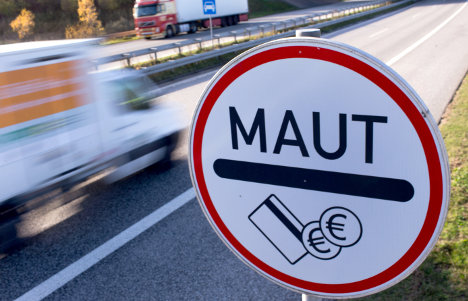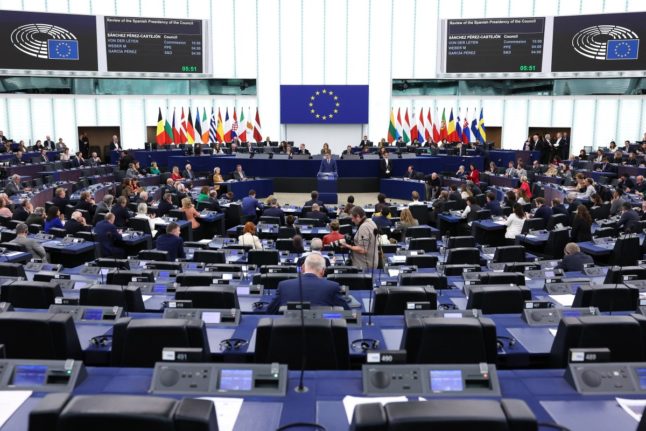P { margin-bottom: 0.08in; } Dobrindt told a meeting of Christian Democratic Union (CDU) leaders in North Rhine-Westphalia that he might dial back his party's plans, which originally called for a toll on all roads.
His party, CDU allies the Bavarian Christian Social Union (CSU) campaigned during 2013 legislative elections to introduce the toll to hit foreigners using German roads.
German drivers would have to display a sticker showing they'd paid but would receive a road tax rebate to compensate.
The plans have caused friction between the CDU-CSU sister parties, with Merkel herself opposed to the scheme.
Critics say that forcing foreigners to pay to use the roads will hit trade and tourism income, especially in states that see a lot of cross-border traffic like North Rhine-Westphalia, Baden-Württemberg and Rhineland-Palatinate.
And it's still not clear whether different rules for foreigners will infringe European competition rules.
Dobrindt's limiting of the rollout to motorways is designed to bring CDU politicians in those states on board with his idea, so that the whole party can support it when it comes to a vote in the Bundestag.

CDU president in North Rhine-Westphalia Armin Laschet said that “we're still not at the goal” on a deal over the toll plans.
Beyond the conservative parties, the plans have also met resistance across the political spectrum.
The Left party said that Dobrindt must put an end to his “nonsensical” plans. The toll would lead to “lower receipts [for the government] for the same amount of money spent,” Left MP Herbert Behrens said.
But Dobrindt is pressing ahead, planning to introduce a bill by the end of October to set up the toll on motorways in 2016 that may also include provisions to extend the toll to all roads managed by the federal government in 2018.
SEE ALSO: Want to avoid driving fines? Swap seats





 Please whitelist us to continue reading.
Please whitelist us to continue reading.
Member comments